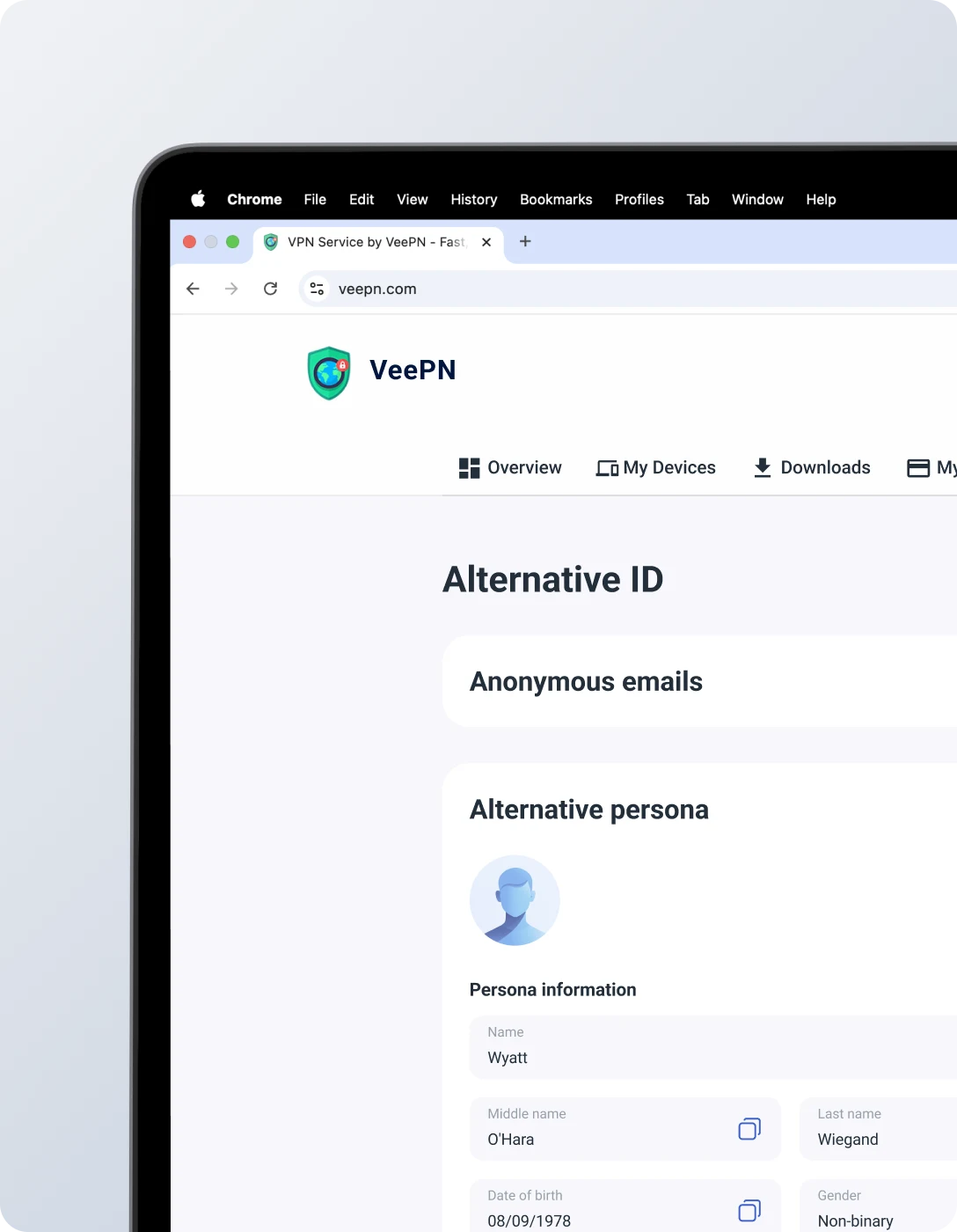DNS Leak Test: Check for Leaks Fast
Discover if your DNS is leaking your real IP and location. Our free tool helps protect your privacy.
- IP address checker
- DNS leak checker
Warning! Your IP address is visible and sites can identify you.
Not protected!
Your personal data and online activity are out in the open. Use VeePN to hide your IP address and protect your identity.
-
Location:
Columbus (United States)
- ISP: Amazon.com
- Hostname:
- OS: Unknown
- Browser:
- Timezone: America/New_York
- Language: EN
- Proxy: No
Warning! Your IP address is visible and sites can identify you.
Not protected!
Your personal data and online activity are out in the open. Use VeePN to hide your IP address and protect your identity.
DNS requests are exposed!
Whoever runs your DNS servers can log every website you visit:
No DNS leaks detected
You’re using VeePN’s secure DNS servers.
Protected by
Nothing to worry about here — your Internet traffic is secure. Enjoy the web without external tracking and limits.
DNS requests are exposed!
Whoever runs your DNS servers can log every website you visit:
No DNS leaks detected
You’re using VeePN’s secure DNS servers.
Warning! Your IP address is visible and sites can identify you.
Not protected!
Your personal data and online activity are out in the open. Use VeePN to hide your IP address and protect your identity.
WebRTC is leaking your IP address!
Your browser is exposing this IP address to the websites you visit:
- IP address: N/A
- Type: N/A
- Status: Potential leak

What is a DNS Leak?
Domain Name System (DNS) is the Internet phonebook: it transforms domain names into IP addresses that devices use to identify each other within a network. A DNS leak is a vulnerability that lets anyone see your online activity even though you're sure you have a VPN turned on and protecting your privacy.
What Causes DNS Leaks?
A DNS leak occurs when your DNS requests go straight to your Internet Service Provider (ISP) instead of going through your VPN. This can happen due to misconfigured VPNs, operating system defaults (especially on Windows), browser features like DNS-over-HTTPS or conflicting software. And what happens? Your ISP, hackers or surveillance groups can see which websites you visit, defeating the whole purpose of using a VPN. To stay safe use a VPN with DNS leak protection like VeePN where all your DNS queries stay encrypted within our tunnel.
How to Prevent DNS Leaks
To stay protected, you should test your VPN regularly using online DNS leak test tools. VeePN is designed with robust DNS leak prevention in mind, ensuring that all DNS requests are handled securely within the VPN tunnel. In such a way, your browsing history remains private and shielded from prying eyes.
How Our DNS Leak Test Works

Quick Leak Detection

Instant Results

Safe and Simple

Stay Protected
Risks and Dangers of DNS Leaks

Reveal of Online Behavior
DNS leaks expose the sites and apps you visit, enabling ISPs or hackers to track and analyze your habits for targeted ads or blackmail.

Heightened Monitoring Risks
Authorities, employers, or cybercriminals can intercept queries, leading to constant surveillance and profiling of your digital footprint.

Susceptibility to Cyber Threats
Exposed DNS can be exploited for phishing or malware injection, redirecting you to fake sites.

Compromised Personal Security
Your online behavior and data become vulnerable to collection and sale by data brokers, thereby increasing the risk of identity theft.

Access Restrictions and Censorship
Leaks enable networks to block content or enforce geo restrictions, thereby limiting your online freedom.

Exposure to Advanced Attacks
Vulnerabilities like DNS poisoning or spoofing can manipulate requests, leading to fraudulent transactions or data breaches.
